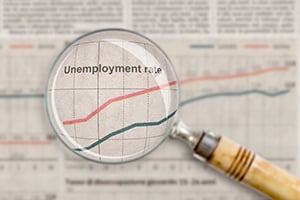Thinking about the constraints I mentioned yesterday, I want to dig a bit deeper into the employment and jobs question. As I wrote last week, I expect the jobs market to stay tight. There are now more jobs out there than there are workers. Unless something drastic changes, that is likely to remain the case. As job growth continues to outpace workforce growth, that situation is likely to force changes, including increased automation.
Commonwealth
Economy Making the Best of a Difficult Situation
It’s another day of travel for me, as I head to Atlanta to host a National Conference watch party for Commonwealth. Gathering together in Las Vegas, as we had originally planned for our National Conference, was simply too risky. Between full hospitals, the inability to host outdoor events, and the fact that there would be thousands of non-Commonwealth guests in our hotel, it simply didn’t make sense to have everyone take those risks.
Schools of Economic Thought: Theory Vs. Reality
I have been writing this blog for going on 10 years now and have been in this business for longer than that, so I have been asked a lot of questions. They tend to come in cycles. At this point, unless something like the pandemic comes along, which really is new, they also tend to be variations on a theme.
Monday Update: Existing Home Sales Surge in September
Last week saw the release of several important economic updates, with a focus on the housing sector. September’s existing home sales report was a highlight, with sales growth hitting a one-year high during the month. This will be another busy week for updates. The reports scheduled will touch on wide swaths of the economy, including a first look at third-quarter GDP growth.
Identifying Trends and Patterns in the COVID Data
Brad here. Over the past couple of weeks, I have been mentioning that I thought there’s a risk of a “heating” wave of the pandemic this fall in the northern states, following the “air conditioning” wave we saw in the southern states this past summer. I discussed it as a reasonable risk and something to keep an eye on, but my colleague and friend Pete Essele has gone well beyond that and done the work here to establish in detail both what happened over the summer and what that could mean for the fall and winter. Definitely worth a read! Great job Pete and thank you.
Starting with a Financial Plan
“If you don’t know where you’re going, any road will take you there.”—Oft-cited paraphrase of exchange between the Cheshire Cat and Alice in Lewis Carroll’s classic children’s tale, Alice’s Adventures in Wonderland






 Olivia has joined Riverstone Wealth Partners providing knowledge gained from her 15 plus years in management. Olivia has provided services within the financial industry, mortgage industry, and in the non-profit sector. Olivia thrives on providing stellar customer service, accomplishing all goals set before her, and doing the right thing. Olivia’s degree in Business Management allowed her to take on roles that ultimately led her to Riverstone Wealth Partners. Olivia is currently pursuing another degree with an emphasizes in Human Resources, which she has learned over time… is her passion!
Olivia has joined Riverstone Wealth Partners providing knowledge gained from her 15 plus years in management. Olivia has provided services within the financial industry, mortgage industry, and in the non-profit sector. Olivia thrives on providing stellar customer service, accomplishing all goals set before her, and doing the right thing. Olivia’s degree in Business Management allowed her to take on roles that ultimately led her to Riverstone Wealth Partners. Olivia is currently pursuing another degree with an emphasizes in Human Resources, which she has learned over time… is her passion!




 Director of Operations
Director of Operations


 Ashley has been working in the customer service field since she started her first job at age 16. For the past ten years she worked in an office setting handling accounts payable and receivable as well as some receptionist work. She is very excited to learn more about the investment field.
Ashley has been working in the customer service field since she started her first job at age 16. For the past ten years she worked in an office setting handling accounts payable and receivable as well as some receptionist work. She is very excited to learn more about the investment field. Alec joined Riverstone after starting out his post college career on the operations side of an international logistics company working as an account executive. Graduating with a BA in Economics from the University of Illinois at Urbana-Champaign, he quickly developed a strong interest in the financial world. A lifetime resident of the Chicagoland area, Alec is an avid fan of his hometown sports teams. He is also an enthusiast of outdoor activities like fishing, camping, and hiking whenever possible.
Alec joined Riverstone after starting out his post college career on the operations side of an international logistics company working as an account executive. Graduating with a BA in Economics from the University of Illinois at Urbana-Champaign, he quickly developed a strong interest in the financial world. A lifetime resident of the Chicagoland area, Alec is an avid fan of his hometown sports teams. He is also an enthusiast of outdoor activities like fishing, camping, and hiking whenever possible. Carol has a wide variety of experiences and has worked mainly with not-for-profit organizations. She spent 20 years in fundraising and 15 years teaching in the Illinois school system while she raised her younger children. Carol lives in Sugar Grove with her husband, Ron, and their Golden Retriever, Charley. She has four children and two grandchildren. When she’s not working, Carol enjoys spending time with friends and family, running, fishing, bible study, and watching her grandchildren play sports.
Carol has a wide variety of experiences and has worked mainly with not-for-profit organizations. She spent 20 years in fundraising and 15 years teaching in the Illinois school system while she raised her younger children. Carol lives in Sugar Grove with her husband, Ron, and their Golden Retriever, Charley. She has four children and two grandchildren. When she’s not working, Carol enjoys spending time with friends and family, running, fishing, bible study, and watching her grandchildren play sports. Wealth Advisor
Wealth Advisor Wealth Advisor / Registered Principal
Wealth Advisor / Registered Principal Wealth Advisor
Wealth Advisor Wealth Advisor / Registered Principal
Wealth Advisor / Registered Principal Wealth Advisor
Wealth Advisor Wealth Advisor Assistant
Wealth Advisor Assistant Registered Relationship Assistant
Registered Relationship Assistant